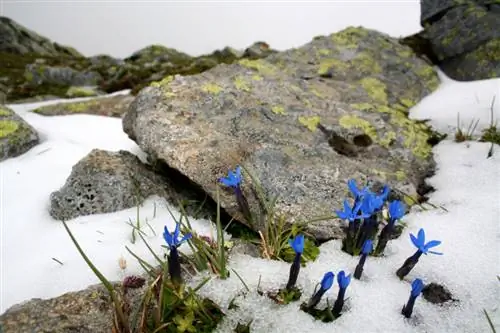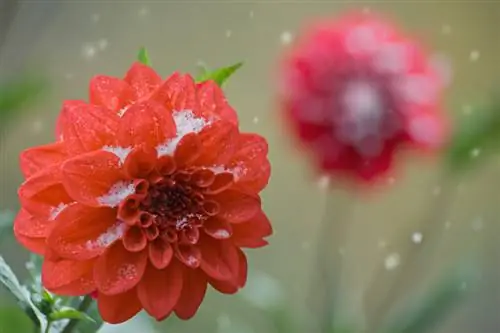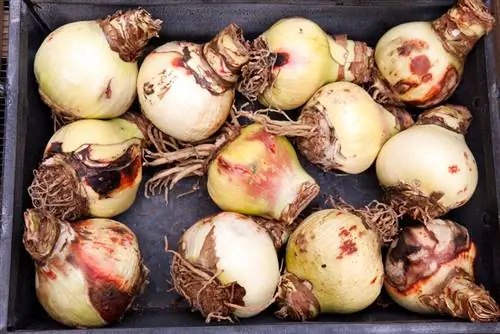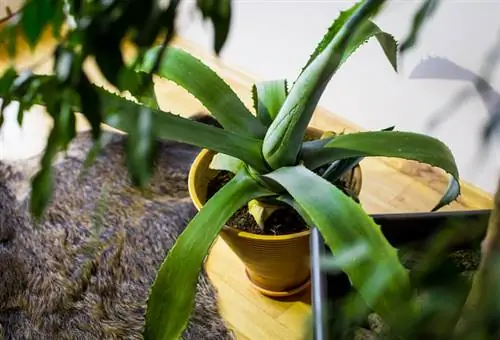- Author admin leonars@hobbygardeners.com.
- Public 2023-12-16 16:46.
- Last modified 2025-01-23 11:20.
Gentian is native to the Alps. The gardener should therefore assume that the perennials are completely hardy. Basically that is true. But in rough locations it is advisable to cover the plants. Water supply is even more important in winter.
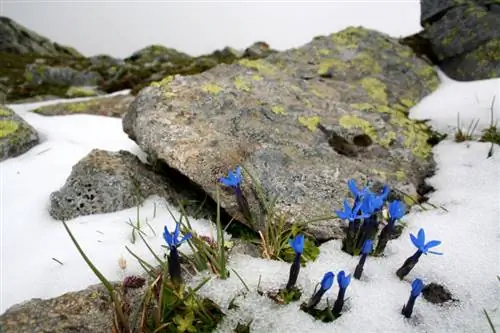
Is gentian hardy and how do you protect it in winter?
Gentian is a hardy perennial native to the Alps. In winter, gentian needs sufficient soil moisture to avoid damage. For additional winter protection, you can place brushwood or leaves over the plants and water regularly on frost-free days.
Gentian grows in nature under bushes
In the Alps it often gets very cold, but the gentian perennials in nature are protected from wind and weather by higher-standing plants.
Although gentian is robust and hardy, you should provide winter protection, especially in harsh locations.
It not only protects against frost, but primarily against drying out of the soil, which is very harmful to gentian.
How to protect the hardy perennial
Prune the perennials after flowering in autumn.
In the garden, place some brushwood over the perennials or cover the ground with leaves. If you have planted Koch's gentian, you can also use fir branches. The falling needles acidify the soil.
Overwintering gentian in a pot
Gentian in pots is less hardy than gentian outdoors because the soil cools down and dries out more quickly. This is how you overwinter gentian in a pot:
- Place the planter in a protected corner
- Place insulation material under the pot
- Cover the bucket with fleece (€72.00 on Amazon) or foil
- Water regularly
- Check for pests occasionally
Watering especially in winter
Normally, ornamental perennials need very little water in winter. With gentian it is the other way around. It gets by with little moisture in summer, but often needs additional watering in winter.
If your gentian doesn't sprout again after winter, it's not because the perennial didn't survive the frost. Insufficient soil moisture, which occurs in very dry winters, is usually to blame.
So water the gentian in the garden or in the pot on frost-free days. But be sure to avoid waterlogging.
Tips & Tricks
It's best to plant varieties like the Clusius gentian in the rock garden. There, the perennials are perfectly protected from drying out by stones and other plants. An alternative is planting under half-height bushes, which is ideal for Koch's gentians.

